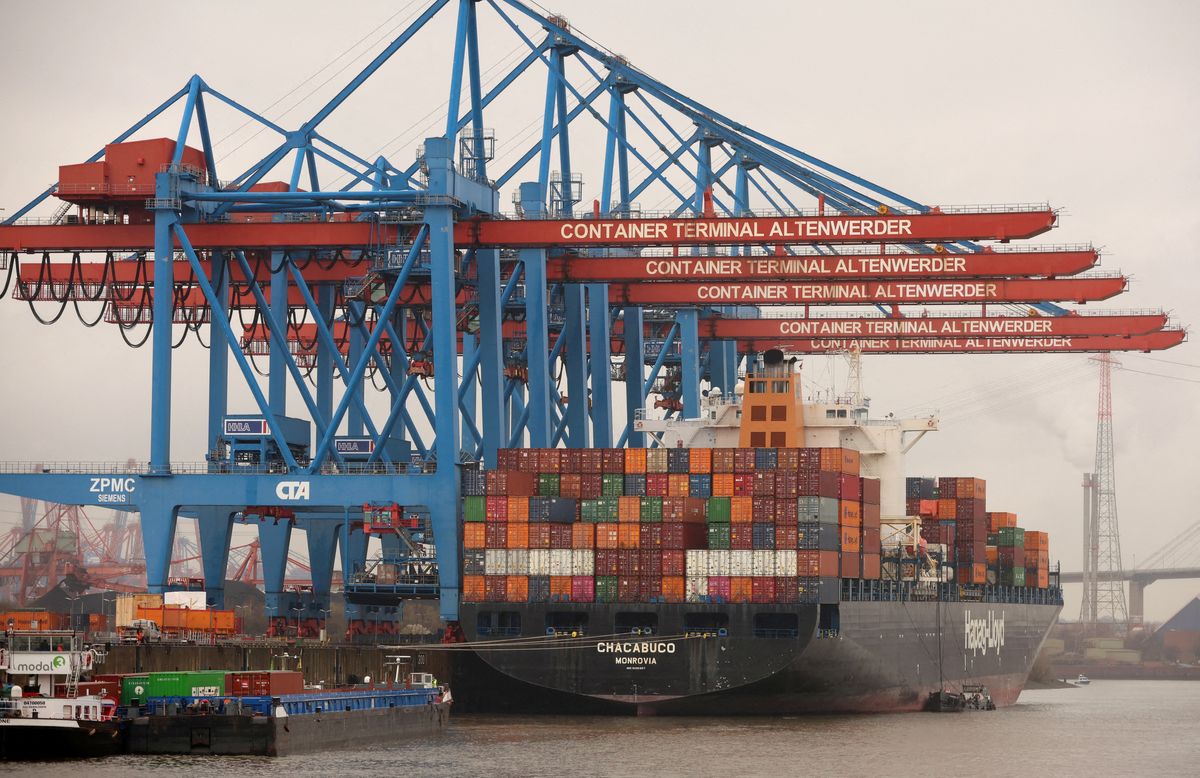Global shipping has a greenhouse gas problem
The global shipping industry is responsible for some big greenhouse gas emission numbers.

A few minutes every morning is all you need.
Stay up to date on the world's Headlines and Human Stories. It's fun, it's factual, it's fluff-free.
The backstory: The global shipping industry is responsible for some big greenhouse gas emission numbers. Those massive ships crossing our oceans to move stock spew out as much carbon in a year as the country of Germany (which is a lot). The shipping industry is necessary, though, as it’s responsible for moving 90% of our goods around the world. And while other industries have started to make net-zero goals, the shipping industry doesn’t seem to have any targets like that.
More recently: The shipping industry has been getting more and more pressure to make some changes and even to pay climate reparations. Sea trade is expected to become even bigger by 2050, so making it a greener industry is a priority.
The development: This week, the UN group that regulates maritime shipping, the International Maritime Organization (IMO), is meeting to talk about this problem. Delegates from 175 governments will be debating how to cut down on greenhouse gas emissions from this sector. They might decide to make more extreme climate targets for the industry.
There’s another, more complicated debate that we could see play out, too. Should the UN make an international carbon tax for polluting vessels, and should that tax go to vulnerable countries for climate-impact damage? The shipping industry generally supports that money going back into decarbonizing itself, but countries disproportionately affected by climate change say that money should go to them.
Key comments:
“Shipping needs to transition and shipping as a sector needs financing to transition,” said Albon Ishoda, a Marshall Islands envoy attending the IMO meeting. “But also, we are in this situation in part because shipping has been given a free pass. So there are a lot of reasons why part of this revenue needs to go back to the most vulnerable countries.”
“It looks like IMO is about to adopt some very ambitious GHG reduction targets,” said Simon Bennett, deputy secretary general at the International Chamber of Shipping. “But it’s not yet certain that governments also have the appetite to rapidly develop the radical measures, such as the levy-based Fund and Reward system proposed by shipowners, that will be necessary to make such high levels of ambition plausible.”




Comments ()